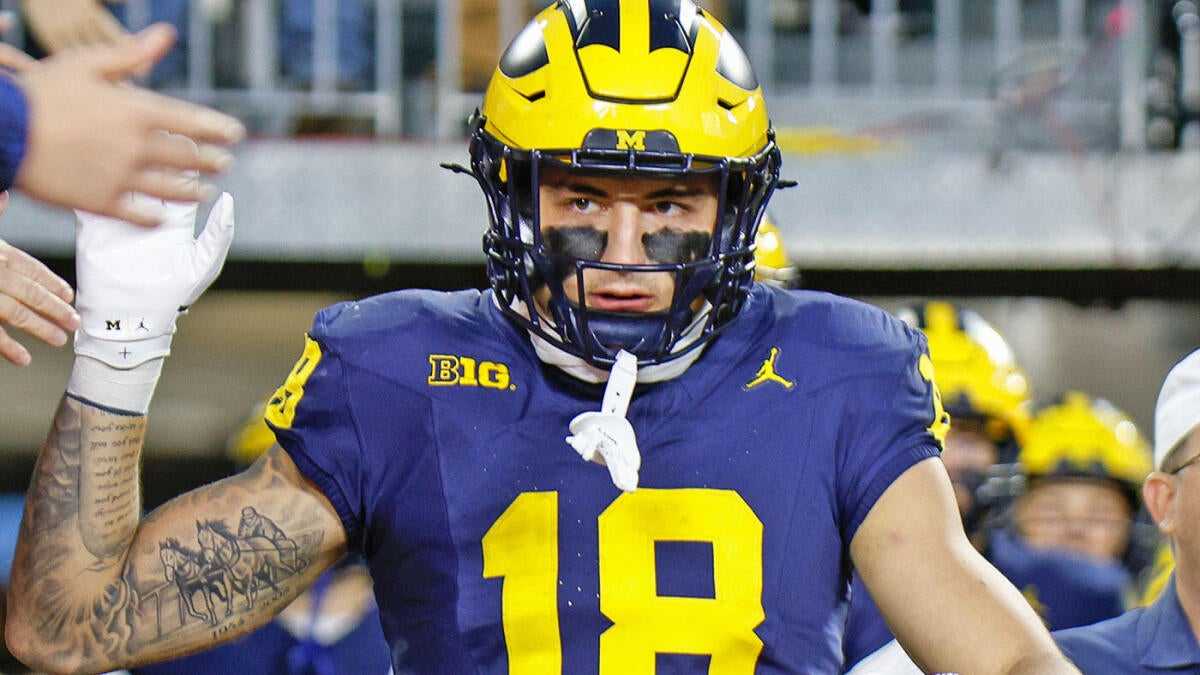Dissecting the 2025 Dynasty Fantasy Football Tight End Duel: Colston Loveland vs. Tyler Warren
The 2025 NFL Draft introduced an exciting layer to dynasty fantasy football in the form of two standout tight ends, Colston Loveland from Michigan and Tyler Warren from Penn State. Both first-round selections, these athletes spark ongoing debate about who will dominate the rookie tight end scene. Their distinct attributes, team situations, and fantasy outlooks create a rich tapestry for analysis and strategy among fantasy managers.
Contrasting Profiles: Body, Skills, and Style
Understanding Loveland and Warren starts with their physical builds and on-field capabilities, which inform how each might thrive in the professional ranks.
– Tyler Warren stands tall at 6’5″ and carries 256 pounds, blending size and explosive athleticism with a blocking prowess frequently praised as unrivaled in his draft class. His dual-threat nature—equally adept at sealing blocks and making catches—provides a balanced skill set highly sought in dynamic offensive systems. This versatility not only promises longevity but positions him as a reliable contributor in both run and pass plays.
– Colston Loveland, at 6’6″ but slightly lighter at 248 pounds, distinguishes himself as a dynamic receiver with elite route running and hands. His athleticism translates into impressive yards after catch, forcing defensive coordinators into matchup dilemmas. His style favors an impactful receiving role, projecting a high ceiling for fantasy points especially in formats rewarding receptions and big plays.
Though both are “blue-chip” talents, their divergent strengths suggest different NFL roles—Loveland as a receiving focal point and Warren as a hybrid blocker-receiver.
Landing Spots: How Team Context Shapes Fantasy Value
Draft position alone doesn’t settle the debate; where these players landed carries significant implications:
– Chicago Bears and Loveland benefit from a seemingly stabilized quarterback environment and a tailored offensive scheme that prioritizes versatile tight ends. Chicago’s investment (Loveland was the 10th pick) signals trust and anticipated involvement, setting a foundation for near-term fantasy upside.
– Indianapolis Colts and Warren present a more uncertain picture. Warren was chosen 14th overall, entering a quarterback situation lacking clarity, potentially capsizing immediate fantasy returns. However, his blocking excellence and dual-threat skill set cater well to offenses seeking multifaceted tight ends, hinting at long-term durability and situational value.
The Bears’ offensive structure and Loveland’s higher draft status tilt many opinions toward him as the favored rookie tight end for fantasy managers prioritizing swift productivity.
Fantasy Rankings and Implications: A Fluid Contest
The rankings for rookie tight ends in dynasty leagues reveal a shifting landscape:
– Initial Sentiment embraced Warren’s blocking skills and immediate utility forecasts, making him the early favorite.
– Shifting Bias followed the draft and team fit revelations, with Loveland’s favor rising due to Chicago’s system and the weight of draft capital invested in him. Therefore, many analysts repositioned him as TE1 among rookies.
– Rankings Depend on League Format: Block-heavy, tight end premium leagues may find Warren’s multifaceted game more rewarding over time, while standard dynasty formats favor Loveland’s expected target volume and receiving role.
– Draft Range: Both players are projected to be taken tightly within early rookie draft rounds (picks 1.08 to 2.02), often back-to-back, a testament to their nearly equal value.
Understanding these nuances helps managers calibrate their selections based on league settings and strategic timelines.
Strategic Insights for Dynasty Managers: Longevity vs. Immediate Impact
Choosing between Warren and Loveland reflects a balance of patience and readiness:
– Warren’s Strength in Blocking grants him a niche role conducive to longevity, especially in balanced or run-heavy offenses. While his initial fantasy output might trail, his career trajectory suggests sustained contribution and hybrid usage that fantasy managers often cherish in dynasty formats.
– Loveland’s Immediate Fantasy Appeal is bolstered by his receiving role and Chicago’s system. His higher target share and early involvement forecast a quicker pathway to fantasy relevance, ideal for managers targeting rookie drafts as a source of instant returns.
– Draft Capital Consideration: The Bears’ first-round plus additional picks invested in Loveland implies a higher team commitment, generally correlating with more opportunities and opportunity-led fantasy production.
– Tier Placement Among Rookies: While other prospects like Harold Fannin Jr. exist, Warren and Loveland stand clearly ahead, focusing managerial attention squarely on their duel.
This strategic frame helps fantasy managers align their picks with their league’s scoring and timeframe preferences.
Final Thoughts: Weighing the Tight End Prize
The decision over who claims the 2025 rookie tight end crown ultimately rests on priorities:
– If immediate production and target volume rank highest, Colston Loveland leads the pack. His advantageous landing spot, draft pedigree, and receiving acumen provide strong reasons to label him the favored TE1.
– For managers valuing a tight end who offers blocking excellence, potential career durability, and a multi-dimensional role, Tyler Warren remains a compelling candidate, especially in tight end premium or dynasty leagues emphasizing longevity.
In sum, the 2025 tight end class represents a nuanced choice for dynasty managers—a coin flip weighted slightly by current expert consensus toward Loveland due to opportunity, but with Warren’s versatility and skill set ensuring this debate will endure as both careers unfold.











